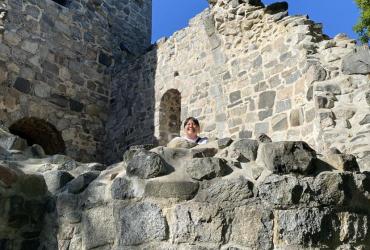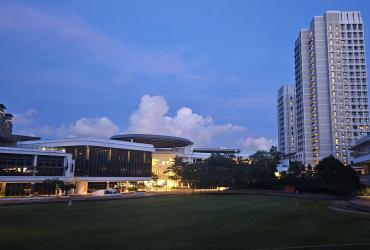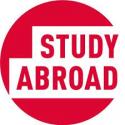Orientation and First Weeks
There was a lot to do in the first week and things to buy to be properly settled in and although it was busy, I arrived in France a week before the first week of classes so there was no pressure to do anything quickly. During the end of the first week and during the first few weeks as well, there were numerous opportunities to help the students get used to their new environment and resources that would be available to them, both through the school and through Erasmus events. In this way, settling in did not feel difficult nor was it stressful.
Day to Day
The day-to-day in France felt much more relaxed than it is here in the Lower Mainland. The French culture is laid-back and people are not in a rush. There are many local markets in numerous parts of the city where fresh produce is sold. Otherwise, grocery stores are usually less than a 10 minutes walk in all major areas of the city. The public transportation was reliable and the tram is often used to get to school.
Learning and Adaptation
The French education system was likely the hardest thing to adapt to. It felt like France was a bit old-fashioned because registering for the classes is done by speaking directly with the professor and asking to be put on the course list and sometimes by a coordinator but it was not possible to do it online yourself. The school has a learning platform similar to Canvas called CELENE but it was not used by all the professors. Additionally, most professors do not structure their course with a PowerPoint and more often than not teach the class by reading from their notes. In the beginning, I felt overwhelmed because of the differences in the structure of the education system and the language but with time it became easier to adapt to the change and the courses were easier to follow. Even though the French professors do not have set offices or office hours, they are kind and are willing to help if you send them an email. The grading system is also different from Canada and the grades are numbers out of 20. Normally, a passing grade is 10/20 but this isn't always the case and if the average is low, the passing grade or "la moyenne" is what determines what a passing grade is.
Cultural and Environmental Observations
One of the first differences that I noticed was how connected Europe is, in general. It is easy to travel to another country nearby and is not as expensive as it would be to travel from British Columbia to a nearby province. Numerous modes of transport are available in a wide price range and oftentimes, flights are one of the cheapest options--a flight from Paris to Madrid can cost as little as $45. Likewise, public transport is very good even in smaller cities. Having a car, while convenient, is not necessary and many people use public transportation because of how reliable and practical it is, as a result, there were fewer cars on the road compared to Vancouver. The cost of living in France is much cheaper than in Vancouver but some non-necessities I found to be more expensive. Necessities such as rent and food were significantly less expensive in France but non-essential items such as electronics, gifts, and eating out were (on average) more expensive than in Canada. My biggest culture shock would be adapting to France's Sunday. For the French, Sunday is a rest day, meaning businesses are closed. Some grocery stores may be open until noon but often they will also be closed on Sunday. It is important to plan ahead and not wait until Sunday to go shopping for food.
Social and Extracurricular Activities
I was pleasantly surprised with how many activities were available for the students, especially those specifically for exchange students. The school itself organized a lot of activities almost every week, from Halloween-themed video game nights to plays and concerts for the students and the community to enjoy. The events were posted throughout the university and prices were reduced for students to make the events more accessible. There were other events also hosted by the school but were only for international or exchange students. My favorite activities were the cultural events where the coordinators took us to visit castles. I'd never been to a castle before and the experience was marvelous and mesmerizing! I was surrounded by so much history and culture. I was fascinated to learn about history from specific points in time and saw hundreds of years of history with my own eyes. Outside of the university, there was a program called Erasmus that organized events during the semester which were not only fun but helped foster many meaningful connections between the exchange students.














